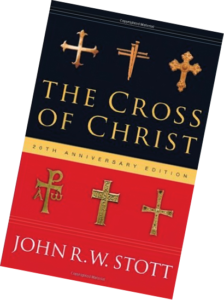Back to series


Recommended Reading:

Download or Listen to Audio
The Defiance of Grace in the Ministry of Jesus
Click here to open a Print - Friendly PDF
Jesus is surprising. His coming fulfilled ancient prophecies, but not expectations. He shattered expectations.
Each of the four Gospel accounts in the Bible uniquely gives us a Jesus who turns upside down our intuitive anticipations of who He is and how following Him works. Like a bad back that needs to return to the chiropractor repeatedly for straightening out, our understanding of Jesus needs to be straightened out repeatedly as our poor spiritual posture throws our perception of Him out of whack—domesticating Him and conforming Him to our image rather than transforming us into His.
For the grace that comes to us in Jesus Christ is not measured. This grace refuses to allow itself to be tethered to our innate sense of fairness, reciprocity, and balancing of the scales. It is defiant.
The Reformation’s rediscovery of grace is a discovery that must take place afresh, in kind if not in degree, in each generation. Left in neutral, all of us tend to slide away from gospel wonder.
Easier said than done. However much we may laud grace with our lips, our hearts are so thoroughly law-marinated that the Christian life must be, at core, one of continually bathing our hearts and minds in gospel grace. We are addicted to law. Conforming our lives to a moral framework, playing by the rules, meeting a minimum standard—this feels normal. And it is how we naturally medicate that deep sense of inadequacy within. The real question is not how to avoid becoming a Pharisee; the question is how to recover from being the Pharisee we already, from the womb, are.
Law feels safe. Grace feels risky. Rule keeping breeds a sense of manageability; grace feels like moral vertigo. But the Jesus of the Gospels defies our domesticated, play-by-the-rules morality. It was the most extravagant sinners of Jesus’ day who received His most compassionate welcome; it was the most scrupulous law abiders who received His most searing denunciation. The point is not that we should therefore take up sin. The point is that we should lay down the silly insistence on leveraging our sense of self-worth with an ongoing moral scorecard.
 It is time to enjoy grace anew. Not the decaffeinated grace that pats us on the hand, ignores our deepest rebellions, and doesn’t change us, but the high-octane grace that takes our conscience by the scruff of the neck and breathes new life into us with a pardon so scandalous that we cannot help but be changed. It’s time to blow aside the hazy cloud of condemnation that hangs over us throughout the day with the strong wind of gospel grace. “You are not under law but under grace” (Rom. 6:14).1 Jesus is real; grace is defiant; life is short; risk is good. For many of us, the time has come to abandon once and for all our play-it-safe, toe-dabbling Christianity and dive in.
It is time to enjoy grace anew. Not the decaffeinated grace that pats us on the hand, ignores our deepest rebellions, and doesn’t change us, but the high-octane grace that takes our conscience by the scruff of the neck and breathes new life into us with a pardon so scandalous that we cannot help but be changed. It’s time to blow aside the hazy cloud of condemnation that hangs over us throughout the day with the strong wind of gospel grace. “You are not under law but under grace” (Rom. 6:14).1 Jesus is real; grace is defiant; life is short; risk is good. For many of us, the time has come to abandon once and for all our play-it-safe, toe-dabbling Christianity and dive in.
It is time, as Robert Farrar Capon (Episcopal Priest) put it, to get drunk on grace. Two-hundred proof, defiant grace. Something of a gospel resurgence is taking place today across various swaths of the Christian church. We must, of course, avoid facile generalizations. Yet it is evident from today’s preaching and teaching, books and blogs, conferences and coalitions, that the gospel of grace is being wonderfully reasserted and cherished. Many have been walking with the Lord for years yet are only now discovering the new mental and emotional universe of grace.
All this we happily receive from the hand of the Lord. The need of the hour, however, is neither self-congratulation nor smug diagnosis of who “gets” the gospel of grace. The need of the hour is deeper reverence, new levels of wonder at the kindness shown oneself, and a whispered prayer that the good news of God’s free mercy in Christ would spread with a continued contagion the effects of which will be felt for generations to come. After all, wherever the gospel is recovered, diseased forms of the gospel sprout, too. Also, as is always the case, some of the most articulate trumpeters of the gospel of grace lose their way and torpedo their lives and ministries through scandal and sin. Such adversities are not reason to rein the gospel but to trumpet it—the full, comprehensive, biblical gospel—more than ever.
Paul is often seen as the key biblical writer to write of grace. But as a German Bible scholar from another generation, Ernst Käsemann, said, Paul taught what Jesus did. Paul’s letters give us the prose of grace; Jesus’ life paints us a portrait of grace.
This grace shines through uniquely in each of the four Gospels. In Matthew we see the surprise of disobedient obedience. Jesus’ rebuke is counterintuitive. Mark shows us the surprise of the king as a criminal. Jesus’ mission is counterintuitive. In Luke we are confronted with the surprise of outsiders becoming the insiders and insiders, oddly, becoming the outsiders. Jesus’ community is counterintuitive. And in John we see the surprise of the Creator taking on flesh and blood as a creature. Jesus’ identity is counterintuitive.
Matthew
The deepest distinction among human beings is not between the bad and the good, but between those who know they are bad and those who do not. Yet strangely, it is not the blatantly wicked who have the greatest difficulty seeing this but the carefully obedient. Jesus consistently diagnoses the quiet guilt of the rule keepers. Scrupulous obedience is, more often than we are aware, thinly veiled disobedience. Obedience, therefore, can be damning.
Nowhere is this put more sharply than in Matthew’s Gospel. Throughout the book, the strange key to participation in the joys of God’s kingdom is not qualifying ourselves for it but frankly acknowledging our disqualification, a disqualification that manifests itself not only in rule breaking, but also in rule keeping. Keeping the rules extinguishes the sin in our hearts no more than buckets of gasoline extinguish the flames in our fireplaces.
Consider a string of accounts in the middle of Matthew’s Gospel. In each passage, a central character assumes one has to “qualify” to gain some corresponding approval.
- The disciples thought little children needed to qualify with age in order to gain Jesus’ attention (19:13–15).
- The rich young man thought he needed to qualify with law keeping in order to gain eternal life (19:16–22).
- Peter and company thought they had to qualify with sacrifice in order to gain a reward (19:23–30).
- The early hired workers thought all employees had to qualify with sufficient work in order to gain a day’s wage (20:1–16).
The greatest danger for followers of Christ is not the ways they fail Him, but the ways they succeed. Failures are precisely the kind of people God is looking for. For failures instinctively understand how to open the windows of their hearts to let in help. Successes invariably turn in on themselves in satisfied self-reliance.
Mark
The deepest surprise built into the fabric of the Gospel of Mark lies not mainly in the realm of what it means to be a truly obedient follower of Jesus but rather deals with Jesus Himself (though the two are closely linked). Jesus’ definition of morality is counterintuitive in Matthew; Jesus’ own mission is counterintuitive in Mark. For in Mark, we see most clearly the surprise of the king being treated as a criminal.
The Gospel of Mark falls neatly into two halves. The first half (1:1–8:30) shows us Jesus the king. The second half (8:31–16:8) shows us Jesus increasingly hurtling toward the fate of a criminal. The hinge on which this transition takes place is Mark 8:22–38. In this hinge passage, we find three short accounts stacked up next to one another: a blind man is healed; Peter boldly confesses that Jesus is the Christ, the messiah-king; and Jesus announces His impending suffering and death, refuting in the strongest terms Peter’s resistance to this suffering. The three accounts are mutually interpreting.
The moment at which Peter proclaims “You are the Christ” is the point at which the disciples have been won over to see that Jesus is the coming king they have so long anticipated. This confession is the conclusion to which all of Mark 1–8 has been driving. It has taken seven chapters and thirty verses, and the disciples are finally convinced. This is the high point of Mark.
Yet it is here, halfway through the Gospel, that the whole story swivels around and begins moving in the opposite direction. For this is only half of what the disciples need to see. They see that He is the king—and if He is the king they have been expecting, that would be enough. But if He is not the king they expect but the king they most deeply need—if He has come not to deal with their circumstances but their sins—then something more is needed. This half of Jesus’ mission the disciples have not yet grasped.
And this is what the two-staged healing of the blind man (an account told only in Mark) is showing us. Jesus “dealt with the blind man as he did,” preached Martyn Lloyd-Jones, “in order to enable the disciples to see themselves as they were.”2 The disciples wanted liberation. But they were nearsighted. They wanted liberation from their circumstances—Roman occupation, pagan overlords, Israel’s internationally undervalued reputation. But Jesus had come to truly liberate them. He had come to liberate them from their sins. He came to free them not from others but from themselves. Not from the overlords of Rome but from the overlord of sin (Rom. 6:14).
This is why the Gospel of Mark does not end at Mark 8:30. Circumstantial liberation required a kingly messiah and a kingly messiah only. Spiritual liberation—real liberation—required a kingly messiah who would Himself be bound like a criminal so that His followers could be liberated in the only sense that ultimately matters.
Luke
 In Luke we find that Jesus’ community is counterintuitive. Those whom one would expect to be “in” are excluded, and those whom one would expect to be “out” are included. The deepest twist of Luke is that Jesus includes the outsiders and excludes the insiders.
In Luke we find that Jesus’ community is counterintuitive. Those whom one would expect to be “in” are excluded, and those whom one would expect to be “out” are included. The deepest twist of Luke is that Jesus includes the outsiders and excludes the insiders.
The dynamic here is similar to that of Matthew, yet Matthew highlights a moral question, Luke a social one. The two are by no means mutually exclusive. Yet what we emphasized in Matthew is mainly a vertical issue; what we are focusing on in Luke is mainly a horizontal issue. In Matthew we saw the human desire to be in with respect to God; in Luke we see the desire to be in with respect to other people.
A quick trip through Luke makes clear how pervasive a theme this is. In Luke 1 an angel appears to both Zechariah the priest and Mary the young virgin. Yet Zechariah, the insider, responds the way Mary, the outsider, ought to have responded. Mary, the outsider, responds the way Zechariah, the insider, ought to have responded. In Luke 2 it is lowly shepherds who are highlighted as noteworthy visitors to the newborn Jesus (2:8–20)—not, as in Matthew’s Gospel, the wise men from the east who were important enough to drop in to the king’s palace on their way to Bethlehem (2:1–7). (One rabbinic tradition lumped shepherds in with tax collectors and revenue farmers as those who will have a particularly hard time being accepted before God.3) In Luke 3, it is those of direct Abrahamic descent who are designated by John the Baptist as a “brood of vipers” (3:7–9).
In Luke 4 Jesus outrages His hearers by reminding them that two of the ultimate Jewish insiders, Elijah and Elisha, healed not the Israelites but the outsiders of the day—a Gentile widow and a diseased pagan soldier named Naaman (4:25–27). In chapter 5, Jesus invites a tax collector named Levi to become an insider and then eats with him at his house while those Jewish men with the best education, the best pedigree, and the best moral résumés grumble (5:27–32). Jesus blesses outsiders and curses insiders in Luke 6, blessing the poor, the weeping, and the reviled while pronouncing woes on the rich, the laughing, and those about whom others speak well (6:20–26).
Showing that He does not have a kind of reverse bias against insiders simply because they are insiders, Jesus accepts a dinner invitation from a Pharisee named Simon in chapter 7 just as He had eaten with a tax collector in chapter 5. The same pattern of embracing outsiders surfaces once more, however, as a socially alienated woman—“a woman of the city, who was a sinner” (7:37)—is embraced and forgiven, while Simon appears to be left on the outside, failing to understand the debt that he himself needs forgiveness (7:36–50). In Luke 8, Jesus dubs the common crowd His mother and brothers, leaving His actual mother and brothers outside (8:19–21).
In Luke 9, a young child is picked up by Jesus and placed among the disciples as an example of whom they should receive, while those who are ready to leave everything behind—so long as they can first say goodbye to Dad and Mom—are not “fit for the kingdom of God” (9:46–48, 62). In chapter 10, a socially despised Samaritan is the hero of the famous parable rather than the socially revered priest or Levite (10:25–37),4 and in Luke 11, Jesus says the men of Nineveh, outsiders if ever there were any, will rise up and condemn the crowds listening so attentively to Jesus (11:29–32). Chapter 12 describes the rejection of a rich man,5 contrasted with the abundant treasures belonging to those who sell their possessions and give to the needy (12:13–21, 31–34).
In Luke 13, many will expect to get into the kingdom of God yet be excluded while “people will come from east and west, and from north and south”—from outside—“and recline at table in the kingdom of God” (13:25–29, 34–35). In Luke 14, the insiders who are initially invited to the great banquet end up rejected, replaced by “the poor and crippled and blind and lame” (14:15–24). The younger son in Luke 15, who wishes his father dead and wastes his inheritance, is in, while the older son, working hard all his life, appears to be out (15:11–32).
In chapter 16, it is poor, wretched Lazarus who enters heaven while his rich neighbor is tormented in hell (16:19–31). In Luke 17, it is only the despised Samaritan who returns to express gratitude to Jesus among the ten lepers who are healed by Jesus (17:11–19), and in chapter 18, it is the hated tax collector who goes home justified, not the ethically scrupulous and socially exalted Pharisee (18:9–14). In chapter 19, Jesus eats with and saves the oppressor, Zacchaeus the tax collector (19:1–10). Luke 20 describes the transfer of a “vineyard,” an Old Testament symbol for the people of God, to “other” (Gentile) tenants (20:9–18), and Luke 21 praises the offering of a poverty-stricken woman instead of the gifts of the rich (21:1–4).
Throughout Luke, the insiders and the outsiders are reversed—threatening to the privileged, liberating to the marginalized. What’s the point? Hell is filled with people who believe they deserve to be outside hell and inside heaven. Heaven is filled with people who believe they deserve to be outside heaven and inside hell.6 Such grace defies our sense of fair play. But it is the logic of the gospel.
John
The scandal of incarnation is the surprise that lies at the heart of the fourth Gospel. Here we are not asking, as in Matthew, what obedience looks like; nor, as in Mark, what Jesus came to do; nor, as in Luke, who comprises His community. We are asking who He is.
In John 1, we read that “the Word became flesh and dwelt among us” (1:14). The term used here is the verb form of the Greek noun skene, meaning “tent” or “tabernacle.” Readers of John’s Gospel familiar with the Old Testament would immediately think of the portable temple, the tabernacle that was transported throughout the wilderness in Israel’s wanderings between Egypt and the Promised Land.

What was the tabernacle? What was the point of this temple? Unlike some other elements of Jewish faith, such as monotheism, temple worship was not unique to Judaism. Virtually every ancient religion had a temple of some kind. The temple, for Judaism as well as for other religions, was a physical location, a building, where the immortal met the mortal. Here the supernatural and natural collided. The eternal and temporal intersected. The temple was where the divine and the fleshly could temporarily meet—never to mix (lest the profane contaminate the sacred!) but rather to come into brief contact with one another. But at the center of human history, the divine and the fleshly, the supernatural and the natural, did mix. “And the Word became flesh and tabernacled among us.”
Rumbling through the Old Testament was the development of the theme of the presence of God among His people, a presence restricted to the most sacred of Jewish places, the tabernacle and then the temple. It was here that God dwelt among His people (Exod. 25:8). It was here that glory rested. Fellowship with God, if only for a few moments, was restored. In fact, the tabernacle was a miniature, representative Garden of Eden—complete with sky-blue ceiling and a lampstand decorated like a flourishing tree. The Hebrew word that corresponds to the Greek word skene was shekan, from which we get our language of Shekinah, the “glory” of God that became so terrifyingly palpable in the temple.
This helps make sense of what John then says in the rest of verse 14: “And the Word became flesh and dwelt [tabernacled] among us, and we have seen his glory.”
In 1 Kings 8:27, Solomon offered a prayer of dedication to the newly built temple, wondering aloud at the absurd notion that an earthly building could contain the God of the heavens: “But will God indeed dwell on the earth? Behold, heaven and the highest heaven cannot contain you; how much less this house that I have built!”
“Will God indeed dwell on the earth?”
Yes.
The Foundation
 In theological terms, our treatment of Matthew lies in the realm of morality, of Mark in atonement, of Luke in ecclesiology, and of John in Christology. Time and again our intuitive expectations of who Jesus is and what He has come to do are turned upside down—whom He excludes, what He came to do, whom He welcomes, and who He is. The Jesus of the Gospels defies our safe, law-saturated, recompense-mindful existence. But though Jesus’ intuition-defying grace surprises us, our confusion does not surprise Him. He knows all about it. And He is a patient teacher, more patient than we have yet dared believe. But how can such grace be ours? Each gospel account not only takes a particular angle on grace, but each also concludes on a lonely hill outside Jerusalem. There, on a cross, we see the foundation for how God in Christ can treat us with such mercy. The obedient one suffered for our disobedience in Matthew. The king suffered for our crimes in Mark. The insider suffered as for us outsiders in Luke. The Creator suffered for us creatures in John. This is great grace. But it is not a soft grace. With Jesus it is all or nothing. He is not asking to be added to our lives. He is insisting on uprooting our festering anxieties and redirecting all our cowering hopes squarely onto Himself. Jesus does not medicate our lives. He renovates our lives. Perhaps some of us have been wading in the offshore pools of fellowship with Christ, thinking we’ve exhausted the ocean? Could it be that there is more for us to experience in Jesus than we have yet dreamed? In his 1950 reflection, “What Are We to Make of Jesus Christ?” C.S. Lewis answers this very question by remarking: “There is no question of what we can make of Him, it is entirely a question of what He intends to make of us. You must accept or reject the story.”7 Lewis then concludes with a penetrating depiction of what it means to hand ourselves over to Jesus. This is the defiant grace of Jesus Christ and where such grace takes us.
In theological terms, our treatment of Matthew lies in the realm of morality, of Mark in atonement, of Luke in ecclesiology, and of John in Christology. Time and again our intuitive expectations of who Jesus is and what He has come to do are turned upside down—whom He excludes, what He came to do, whom He welcomes, and who He is. The Jesus of the Gospels defies our safe, law-saturated, recompense-mindful existence. But though Jesus’ intuition-defying grace surprises us, our confusion does not surprise Him. He knows all about it. And He is a patient teacher, more patient than we have yet dared believe. But how can such grace be ours? Each gospel account not only takes a particular angle on grace, but each also concludes on a lonely hill outside Jerusalem. There, on a cross, we see the foundation for how God in Christ can treat us with such mercy. The obedient one suffered for our disobedience in Matthew. The king suffered for our crimes in Mark. The insider suffered as for us outsiders in Luke. The Creator suffered for us creatures in John. This is great grace. But it is not a soft grace. With Jesus it is all or nothing. He is not asking to be added to our lives. He is insisting on uprooting our festering anxieties and redirecting all our cowering hopes squarely onto Himself. Jesus does not medicate our lives. He renovates our lives. Perhaps some of us have been wading in the offshore pools of fellowship with Christ, thinking we’ve exhausted the ocean? Could it be that there is more for us to experience in Jesus than we have yet dreamed? In his 1950 reflection, “What Are We to Make of Jesus Christ?” C.S. Lewis answers this very question by remarking: “There is no question of what we can make of Him, it is entirely a question of what He intends to make of us. You must accept or reject the story.”7 Lewis then concludes with a penetrating depiction of what it means to hand ourselves over to Jesus. This is the defiant grace of Jesus Christ and where such grace takes us.
The things He says are very different from what any other teacher has said. Others say, “This is the truth about the Universe. This is the way you ought to go,” but He says, “I am the Truth, and the Way, and the Life.” He says, “No man can reach absolute reality, except through Me. Try to retain your own life and you will be inevitably ruined. Give yourself away and you will be saved.” He says, “If you are ashamed of Me, if, when you hear this call, you turn the other way, I also will look the other way when I come again as God without disguise. If anything whatever is keeping you from God and from Me, whatever it is, throw it away. If it is your eye, pull it out. If it is your hand, cut it off. If you put yourself first you will be last. Come to Me everyone who is carrying a heavy load, I will set that right. Your sins, all of them, are wiped out, I can do that. I am Re-birth, I am Life. Eat Me, drink Me, I am your Food. And finally, do not be afraid, I have overcome the whole universe.”8
|
Notes: |

Dane Ortlund
PastorDane Ortlund, Pastor, (Ph.D., Wheaton College) is the former Chief Publishing Officer at Crossway. He now serves as senior pastor of Naperville Presbyterian Church in Naperville, Illinois. He is an editor for the Knowing the Bible series and the Short Studies in Biblical Theology series, and is the author of several books, including Gentle and Lowly: The Heart of Christ for Sinners and Sufferers.

Recommended Reading:
John Stott, The Cross of Christ (Westmont, IL: IVP Books, 2006)
Now from one of the foremost preachers and Christian leaders of our day comes theology at its readable best, a contemporary restatement of the meaning of the cross. At the cross Stott finds the majesty and love of God disclosed, the sin and bondage of the world exposed. More than a study of the atonement, this book brings Scripture into living dialogue with Christian theology and the twentieth century.
 COPYRIGHT: This publication is published by C.S. Lewis Institute; 8001 Braddock Road, Suite 301; Springfield, VA 22151. Portions of the publication may be reproduced for noncommercial, local church or ministry use without prior permission. Electronic copies of the PDF files may be duplicated and transmitted via e-mail for personal and church use. Articles may not be modified without prior written permission of the Institute. For questions, contact the Institute: 703.914.5602 or email us.
COPYRIGHT: This publication is published by C.S. Lewis Institute; 8001 Braddock Road, Suite 301; Springfield, VA 22151. Portions of the publication may be reproduced for noncommercial, local church or ministry use without prior permission. Electronic copies of the PDF files may be duplicated and transmitted via e-mail for personal and church use. Articles may not be modified without prior written permission of the Institute. For questions, contact the Institute: 703.914.5602 or email us.
-
Recent Podcasts
The Road Back – Trevor Lancon’s Story
by Trevor Lancon, Jana Harmon on November 15, 2024Deeply involved in his church’s youth group, Trevor...Read More
-
From Politics to Pampers
by Michelle Morgan Knott, Aimee Riegert on November 15, 2024
-
An Unexpected Change – David Westerhoff’s Story
by David Westerhoff on November 8, 2024
-
Recent Publications
Will You Be Ready?
by Thomas A. Tarrants on October 23, 2024Tom Tarrants gives insights on how we can...Read More
-
Should Christians Be Involved with Politics?
by Kerry A. Knott on October 1, 2024
-
Isn ’t Atheism Based on Scientific Fact Whereas Christianity is Based on “Faith”?
by Cameron McAllister on September 1, 2024
0
All Booked
0.00
All Booked
0.00
All Booked
23169
ADVENT CALENDAR: The Amazing Prophecies Fulfilled by the Birth of Jesus Christ
https://www.cslewisinstitute.org/?event=advent-calendar-the-amazing-prophecies-fulfilled-by-the-birth-of-jesus-christ&event_date=2024-11-28®=1
https://www.paypal.com/cgi-bin/webscr
2024-11-28

Next coming event
Days
Hours
Minutes
Seconds
ADVENT CALENDAR: The Amazing Prophecies Fulfilled by the Birth of Jesus Christ
On November 28, 2024 at 6:00 amSpeakers

Dane Ortlund
Pastor
Team Members

Dane Ortlund
PastorDane Ortlund, Pastor, (Ph.D., Wheaton College) is the former Chief Publishing Officer at Crossway. He now serves as senior pastor of Naperville Presbyterian Church in Naperville, Illinois. He is an editor for the Knowing the Bible series and the Short Studies in Biblical Theology series, and is the author of several books, including Gentle and Lowly: The Heart of Christ for Sinners and Sufferers.






